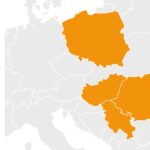2024 marks the biggest electoral year yet for Romania, with European, local, parliamentary and presidential polls scheduled to take place on the background of significant domestic and global challenges, with the potential to further destabilise and polarise society. The rise of far-right and right-wing populists, correlated with a surge of disinformation related to the COVID-19 pandemic, the full-scale invasion of Ukraine and the Israel-Hamas war, has reached an otherwise politically overlooked segment of the population – young people. Feeling unrepresented and severed from the political discourse, Romanian youth is at significant risk of radicalisation, being particularly vulnerable to extremist voices that aim to capitalise on their frustrations and disengagement, while leveraging their preferred channels of information and communication with increasing efficiency. Social media and youth susceptibility to online echo chambers and influencers provide pathway for manipulation by malicious actors whose political agenda aligns – more often than not – with the Kremlin’s (anti-EU, anti-NATO, anti-Ukraine, pro-Russia).
This research focuses on the radicalisation of young people in Romania (approximately defined between ages 17 and 35) and aims to identify and highlight how far-right groups and actors target youth and expose them to extremist narratives and messages via social media, primarily on Instagram and TikTok (platforms predominantly used by younger demographics), as well as outside of the online environment, through traditional media, public demonstrations, networking activities, trainings and recruitment campaigns, analysing their backgrounds, activities, discourse and impact in figures.
A series of far-right organisations targeting young people were examined, with a particular focus on the discourse of three politicians/influencers that appear to have a significant impact and following among youth, targeting them explicitly on their platforms of choice, particularly Instagram and TikTok – AUR leader George Simion, S.O.S. Romania leader Diana Șoșoacă and political commentator Dana Budeanu.
This report has been completed with support from Open Information Partnership (OIP). The opinions expressed are solely those of the authors and do not reflect those of OIP.




